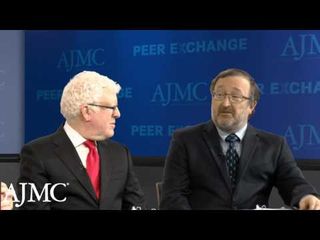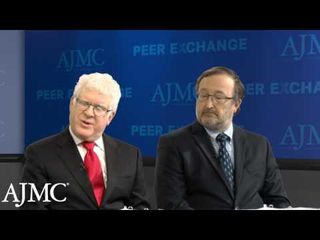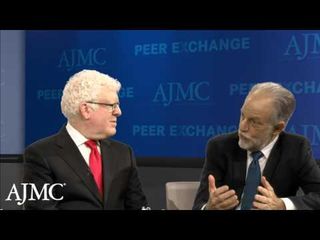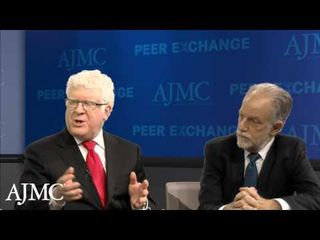
Insurance
Latest News

Latest Videos

CME Content
More News

Patients’ socioeconomic status is a significant factor in predicting survival rates for multiple myeloma, according to a new study.

With the ongoing coronavirus disease 2019 pandemic, a rising number of uninsured Americans, and a new Democratic president and Senate majority, 2021 is shaping up to be a dynamic year for health care policy.

A 9% year-over-year increase was observed in the number of US Medicare beneficiaries who enrolled in a Medicare Advantage health plan in 2020, with the increase in enrollment influenced by the coronavirus disease 2019 pandemic and its related effects.

The Biden administration will reopen the health exchanges created by the Affordable Care Act (ACA); direct HHS and other agencies to reexamine other health policies, including Medicaid work requirements; and reverse the so-called global gag rule while affirming support for reproductive health.

Robert Baird, RN, MSA, president of the National Cancer Treatment Alliance, discusses ways that employers of all sizes can pursue direct contracting with health care providers.

Robert Baird, RN, MSA, president of the National Cancer Treatment Alliance, discusses potential issues employers can avoid by direct contracting with providers.

Insurance status can influence an individual’s ability to access care, stated Milena Murray, PharmD, MSc, BCIDP, AAHIVP, associate professor at Midwestern University College of Pharmacy.

Among 11 developed countries, the United States has the highest maternal mortality rate, a relative undersupply of maternity care providers, and no guaranteed access to provider home visits or paid parental leave in the postpartum period, a recent report from The Commonwealth Fund concluded.

Expansion of insurance coverage due to the Affordable Care Act led to a reduction in the use of emergency services for patients with asthma in New York City.

Challenges remain, in light of new guidelines, when making treatment decisions for patients with severe asthma, noted Megan Althoff, MD, PhD, second year fellow, University of Colorado, Division of Pulmonary Sciences and Critical Care Medicine.

The passing of Supreme Court Justice Ruth Bader Ginsburg has thrown an already contentious election season into greater limbo, as her death and potential replacement could result in substantial changes to the future of the Affordable Care Act and women’s reproductive rights.

Given the constraints prevalent post-COVID-19, Dr Mark Fendrick, director of the University of Michigan Center for Value-Based Insurance Design, stresses that it is now more important than ever for the health care industry to prioritize payment reform, value-based benefit design, and novel policy initiatives.
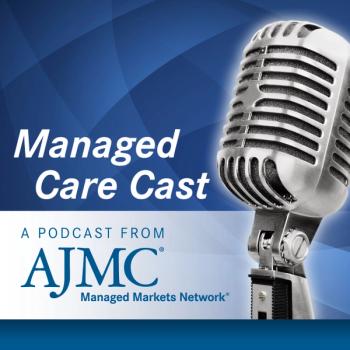
Krisda H. Chaiyachati, MD, MPH, MSHP, discusses the study he co-wrote entitled “Economic Outcomes of Insurer-Led Care Management for High-Cost Medicaid Patients.”

The orders President Trump signed Friday include a deadline for the pharmaceutical industry to come up with their own plan by August 24 to lower prices.

The US government partners with biotech giants Pfizer and BioNTech to distribute a coronavirus disease 2019 (COVID-19) vaccine; the COVID-19 death record continues to be broken; could Medicare be in financial trouble?

End-stage renal disease has long been one of the most expensive and debilitating conditions that affects Medicare beneficiaries. Not only does dialysis cost $90,000 a year—those awaiting a kidney transplant automatically qualify for Medicare—but the need to travel to a dialysis center multiple times a week disrupts employment and home life.

Significant populations of seriously ill individuals are insured by all lines of business and have meaningfully different needs and medical histories in California.

Among Medicare enrollees, there was substantial between-practice variation in the use of second-generation diabetes drugs between 2007 and 2015, according to a study published in JAMA Network Open. Data also revealed a concentration of use among a few prescribers and practices, who were responsible for widespread early diffusion.

The objective of this research was to identify strategies that significantly lower unnecessary inpatient utilization among Medicare beneficiaries with chronic disease.

The announcement of a $35 per month out-of-pocket cap for insulin for some individuals with Medicare is a real victory for the American Diabetes Association and for people with diabetes, said Robert Gabbay, MD, PhD, chief medical and scientific officer of the American Diabetes Association.

Coverage of our peer-reviewed research and news reporting in the health care and mainstream press.

Despite the Medicare Diabetes Prevention Program now being a covered benefit, there is inadequate availability of suppliers to reach Medicare beneficiaries with prediabetes.

A study released Monday used national Medicare data to try and understand disparities between black and white patients in avoidable hospitalizations for ambulatory care–sensitive conditions.

For patients with rheumatoid arthritis (RA), cost can play a role in patient adherence to medication, but the presence of comorbidities does not impact cost of care for patients, according to 2 abstracts presented at the Virtual 2020 International Society for Pharmacoeconomics and Outcomes Research meeting.
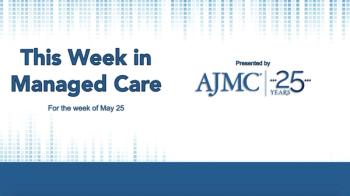
This week, the top managed care news included lower insulin costs for seniors in certain plans; discussions on the future of the Biologics Price Competition and Innovation Act; takeaways from Sharecare's Flatten the Curve Survey.





